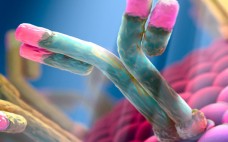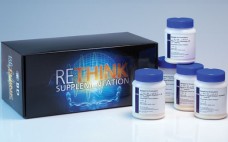This webcast features: Dr. Andreas Anton, Director Bioprocess Development and Dr. Sebastian Schuck, Senior Manager Business Development, Wacker Biotech While WACKER’s own technology ESETEC® has proven highly efficient in producing soluble proteins and antibody fragments via secretion, poorly soluble substances form aggregated inclusion bodies within the cell, which contain incorrectly and/or incompletely folded target proteins. Recently Wacker Biotech introduced FOLDTEC®, its novel refolding technology for bioengineered pharmaceutical proteins. With this new technology, biopharmaceuticals that tend to aggregate can be efficiently…
Upstream
Product Quality Assessment using N-linked Glycan Analysis by LC-MS Supports Identification of Commercially Viable Cell lines for Biopharmaceuticals
This webcast features: Gareth Meek-Brown, Lead Scientist, Lonza Biologics – Slough Product Quality assessment during Upstream and Downstream Process Development is key to the production of safe and efficacious biopharmaceuticals. Critical quality attributes such as N-linked glycosylation are highly dependent upon biosynthesis conditions and play a crucial role in the pharmacology of therapeutic proteins, potentially affecting immunogenicity, pharmacokinetics and pharmacodynamics. The presence of N-linked glycosylation has benefits including increased thermal, physical and chemical stability over aglycosylated variants. The optimum N-linked…
Optimizing Cell Culture Productivity: New Findings on the Impact of Recombinant Protein Supplements
This webcast features: Harris Grevelis, Product Manager for Upstream Technologies at Repligen Cell culture supplements are essential for long-term growth and productivity of cell lines in serum-free media formulations. Both insulin and LONG®R3 IGF-I, a more potent supplement that directly targets and activates the IGF-I receptor, are employed by the biopharmaceutical industry today to support the growth of recombinant cell lines. This webinar will show how these two supplements, used separately and in combination, impact viable cell density and IgG…
Taking Medium and Feed Development Beyond Maximizing Protein Titer to Optimizing Glycan Distribution and Simplifying Process Scale-Up
This webcast features: Serena Fries Smith, Process Science Manager, Thermo Fisher Scientific In the early 2000s when many processes were struggling to achieve 1 g/L, maximizing titers was the industry’s biggest challenge and was essential to having favorable cost of goods and an economically viable product. Over the last 10-15 years, the industry has made significant advances in media and feeds. Due to these advancements, today a standard fed-batch process can typically achieve 3 g/L and some processes are achieving…
Cell Culture Media Supplementation: Effects of Peptones and CD Supplements on Performance and Protein Quality
Biotherapeutic protein production is driven by cell line, cell culture media and supplementation, and bioprocess. While improvements in cell culture media and supplementation have enabled significant advancements in bioproduction titers, optimization to meet the specific needs of individual production cell lines continues to be a key factor to achieving desired production and protein quality. This is especially relevant to the ever increasing number of biosimilar therapeutics. Not only is it desirable to achieve a cost effective level of production, it…
Optimization of HEK 293 and CHO Cell Culture Media Supplementation by DoE Methodology
This webcast features: Dr. Francesc Gòdia, Professor of Chemical Engineering at Universitat Autònoma de Barcelona Chemically defined and animal derived free components media are required for bioprocess development and operation using mammalian cell as platform for the production of biopharmaceuticals. The supplementation of commercial chemically-defined media with specific compounds is studied for the optimization of CHO and HEK 293 cell culture. Design of Experiments approach is used to first screen the most efficient compounds and further determine their optimal conditions.…
Your Shake Flask is not a Black Box Anymore! Online Measurements of Metabolic Activity Accelerate Your Bioprocess Development
This webcast features: Dr. Gernot Thomas John, director of marketing and innovation at PreSens Precision Sensing GmbH Shake Flasks are widely used for bioprocess development. The most widely measured parameter to determine the biomass is the optical density OD. Typically, this parameter is measured not continuously and offline. Now PreSens is launching the new SFR vario. This compact device is placed underneath the shake flasks and measures 4 parameters online: pH, Oxygen, Oxygen consumption (OUR) and biomass. Join GT as…
Increase Protein Yield through Optimization of Suspension CHO Transient Transfection
This webcast features: Laura Juckem, PhD, R&D Group Leader, Mirus Bio High efficiency transient transfections of suspension CHO cells enable researchers to bridge upstream and downstream processes and provide confidence that recombinant protein will have the same properties throughout the drug discovery pipeline. To address this need, Mirus Bio has developed the TransIT-PRO® Transfection Kit to maximize plasmid DNA delivery and therefore recombinant protein yield. There are several important parameters to consider during transient transfection including: (1) growth media compatibility,…
Parallel Cultivation of Microorganisms Using Rigid Wall Single-Use Bioreactors
This webcast features: Dr. Sebastian Kleebank, development and application lab manager, DASGIP GmbH (part of Eppendorf AG) Single-use bioreactor solutions have been successfully established in animal and human cell culture in the last years. Currently this technology is investigated for microbial applications, especially for high cell density fermentations. Dr. Sebastian Kleebank demonstrates that reproducible process control could be achieved using single-use bioreactors operated in parallel.
Use and Optimization of Chemically Defined Media Supplements in Mammalian Cell Culture Processes
The manufacture of biological therapeutics requires a recombinant cell line, a media system and process to produce the therapeutic, and a purification process. BD Advanced Bioprocessing specializes in the media system to produce the therapeutic, including cell culture media and a variety of different types of supplementation.There are many types of supplementation, from animal-origin and animal-free hydrolysates to chemically defined, and each biopharma needs to find the best supplementation for their systems’ requirements.
Chemically defined media supplementation has many benefits such as lot-to-lot consistency and reduction/elimination of the risk of animal-origin materials. However, to get optimal performance these supplements are not always as forgiving as a full-bodied hydrolysate.
This webinar will use the newly commercialized BD CD Resurge™ supplements as a case example on how to use and optimize CD supplements in mammalian cell culture processes.










